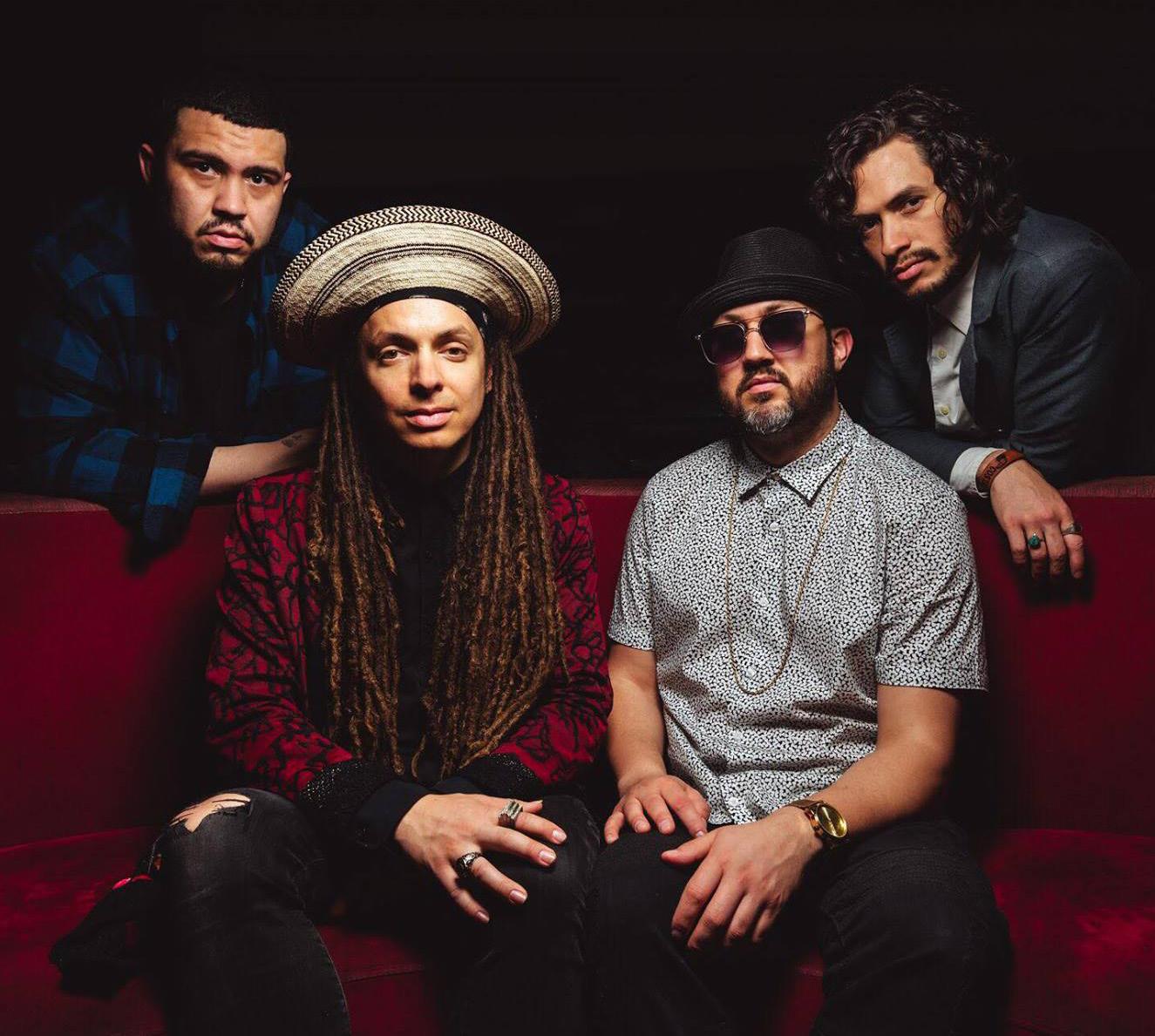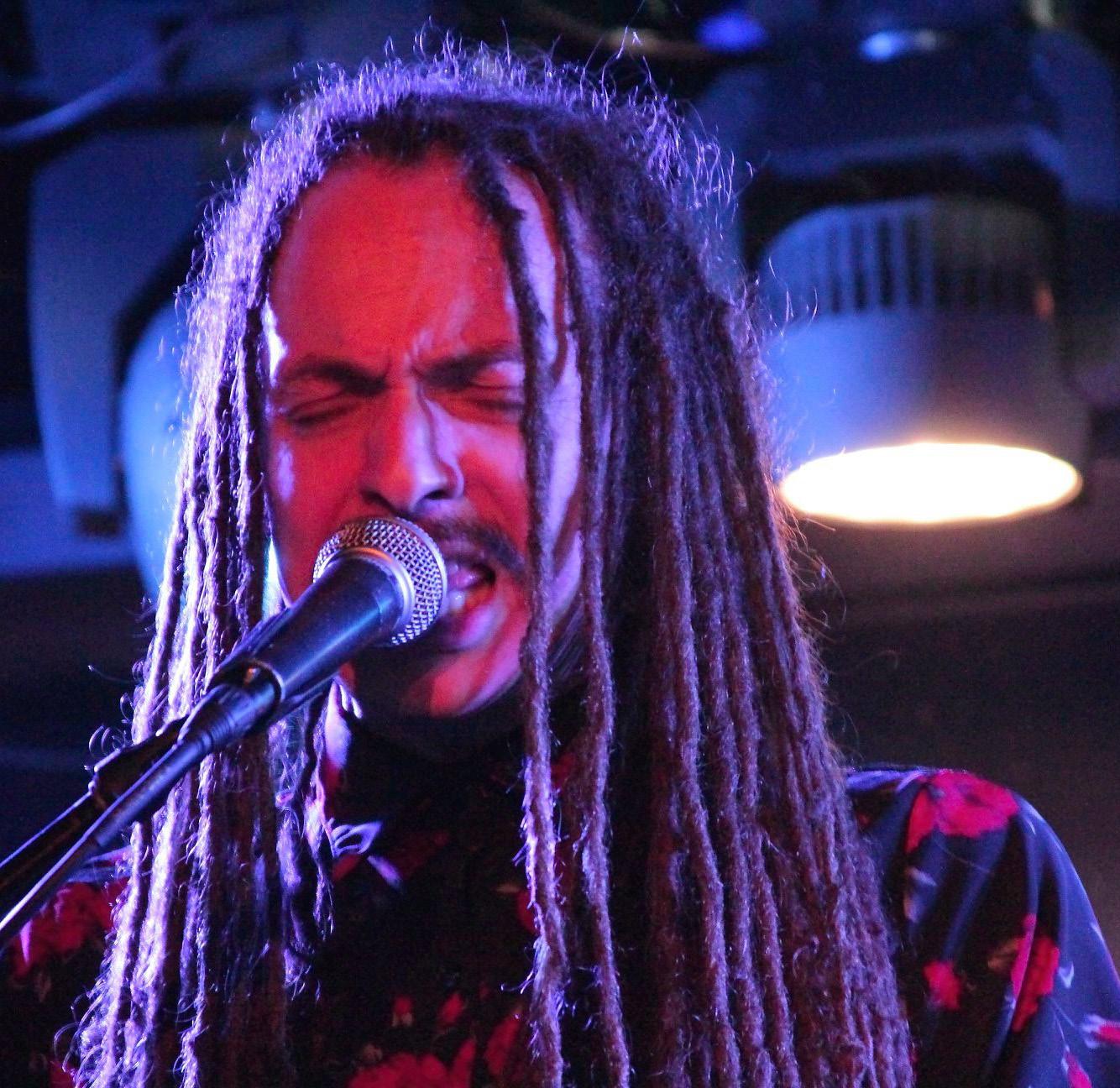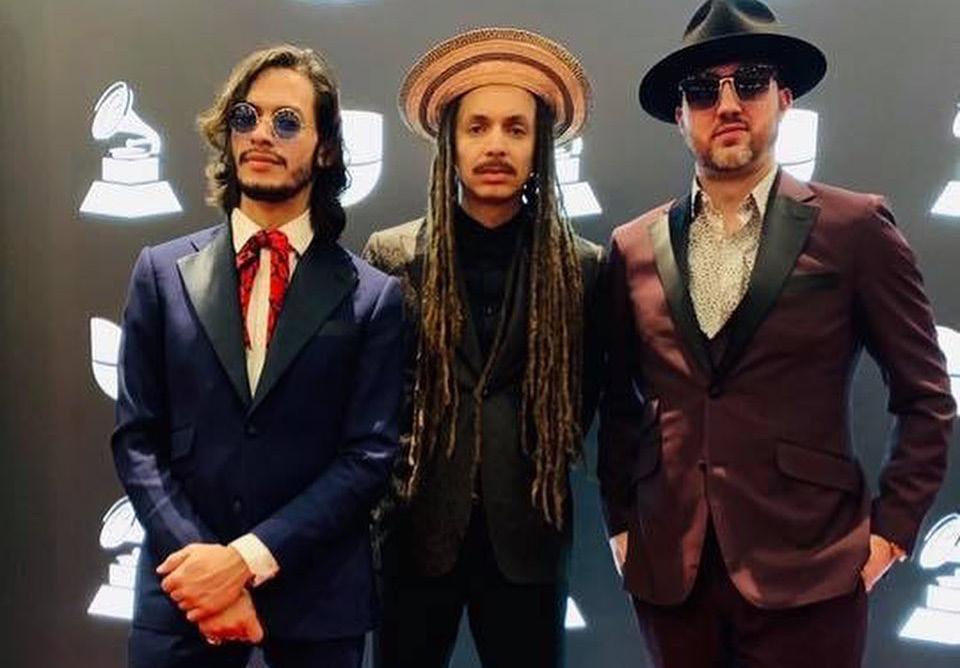
7 minute read
Enrique Javier Chi
Lead Singer of Making Movies
When did you first get into music?
Advertisement
I cannot remember a time where I wasn’t into music. Before I could really speak, I was in love with the song “The Walk of Life” by the Dire Straits. I would dance around and sing the song long before I was able to speak english. That story is part of the reason we named the band Making Movies after the title of another Dire Straits record.
Who or What inspired you to pursue a career in music?
I’m not sure if it was a person that inspired me to pursue a career in music. I had intuitively concluded that this is the only thing I wanted to do with my life. I think that as an immigrant growing up in the midwest, music was my refuge. It made being an outsider an outsider feel not only ok, but maybe being an outsider is cool. Also, Ruben Blades music was like a magic portal back home to Panamá. My family would put on his album Amor y Control and his poetry would transport me––I could smell the sulfur of the city and feel the humidity. That all felt like magic to me and I wanted to devote my life to making that kind of magic.
In Kansas City there were very few mentors to guide me into what sustaining a career in music could look like. That is a big part of our activism is creating spaces and opportunities for young people (especially those from immigrant or disenfranchised communities) to connect with folks who can inspire a career in music. We founded a not for profit, Art As Mentorship with that goal in mind.
How would you describe the music that you create?
It depends on the day and who I’m speaking too, my main answer is that it is real music and with substance, listen for yourself and pull out of it what you need from it. It can also be simply described as rock n’ roll, since the birthplace of rock n’ roll, afro rhythms from the Caribbean formed the foundation for the music. In a way we are just taking rock n’ roll back to its spiritual origins.

How has your music evolved since you first began playing music?
I think that it has deepened and continues to deepen. Music feels like a giant conversation that is being had through time and place, songs from a previous generation, rhythms from our ancestors connect us to a deeper understanding of what it is to be human and be alive. In that music has changed me, I no longer feel like an outsider looking in at the world from a window, but I feel my presence as a tiny part of a giant conversation. There is so much comfort in that.


Making Movies at the 2019 Grammy's.
If you were forced to choose only one, which emotion, more than any other drives you to stay in this tough business? Is it joy, anger, desire, passion or pride and why?
I think it would be passion, or maybe stubbornness. At some point I decided there was no looking back and when you have no safety net you end up finding solutions to whatever life throughs at you. Music is a beautiful conversation that can transform a human beings, it’s also a generously shitty business plan. On a positive note, I think this pandemic will force us to reconsider our priorities and really reflect on the societies we’ve created. As Americans we have are born with an incredible amount of privilege and with that comes a responsibility to shape the world around us with intention. We can choose what things we want in our lives, and thus create sustainable infrastructure for those things. I have no doubt that when asked to reflect on what we want in a healthy society most of us will want one with music written from and for our communities.
Which ingredient do you think makes you special and unique as a performing artist in an industry overflowing with new faces and ideas?
I think that everyone has a unique voice and a unique story to share with the world and we all grow from hearing each other’s perspectives. That’s what the song “No Te Calles” is about, our collaboration with Rubén Blades. He ended up writing what is effectively the mantra of our band.
What has been your biggest challenge as a musician/singer-songwriter? Have you been able to overcome that challenge? If so, how?
I think being a bilingual songwriter has presented some challenges as I’m effectively sharpening two writing tools. Each language has its own mechanisms to communicate spiritual and emotional intelligence as well as its own traditions. When you reference and older song form that can be a useful mechanism to triggering the listener into connecting their own heritage with it. There are two wells to pull from, know when and how to use each one has been the biggest challenge.
I think that overcoming it is a process but I’ve been blessed to have amazing mentors in my life. Artists like Los Lobos and Rubén Blades have mentored us and various crossroads in our journey. We would definitely not be here without their mentorship.
A common phrase in the industry is, “you must suffer for your art”. Do you agree with this statement? If so, how have you suffered for your art?
I think suffering is all how you look at it. I used to think that I had to create suffering for my art to grow, we’d push ourselves to our physical limit on tour (taking on shows that were 12-15 hour drives). The band would tour with zero safety net. No one had any money in savings accounts, the gig had to make us to the next city, put gas in the van and feed us. We’ve been stranded as vehicles blew up in other towns, had to shoplift food, and spent a decade sleeping on floors. I think many people would describe that as suffering, but for us it felt like a great adventure.
Those times when we were really out there with no plan or safety net, we really saw compassionate side of humanity and made lifelong friendships with folks who housed us and fed us. I am excited that I no longer have to say on over the PA system between songs “we don’t have any where to sleep tonight, so if anyone would be willing to house four musicians we’d greatly appreciate it.”
What are the 5 albums that have helped make you the person you are today and why?
Rubén Blades - Amor Y Control As I mentioned above, this album was a huge part of my childhood and stays permanently imprinted in my psyche.
The Beatles - White Album My father was a big Beatles fan and their music also weaved its way through my life. This album was frightening to me as a child, I was afraid of it but I loved it.
Soda Stereo - Dynamo The recurring theme here is my father’s musical taste. He had a cassette of Soda Stereo songs and the melancholy tunes from this album really connected with me. They were truly a great rock n’ roll band and Cerati was a brilliant poet.
Shiner - The Egg I picked this up at a local music store, the clerk recommended it to me as a teenager. I felt inspired that someone in my city was making real music, that concept alone was enough to keep the flame alive in me.
Santana - Abraxas This goes back to my father, I studied those songs and arrangements and eventually learned how to play them. I took pride in knowing that someone could be proudly Latino and American at the same time, that inspired me.
Tell us about your current project.
We are recording a new album, a project that has slowed a bit since the lock down but we are chipping away at it in our home studios. The album to me is a representation of our journey and growth over these last 10 years running around playing music.
How can fans-to-be gain access to your music?
You can experience our music for free through virtually every platform, from Spotify, Soundcloud, Pandora and Apple music.







